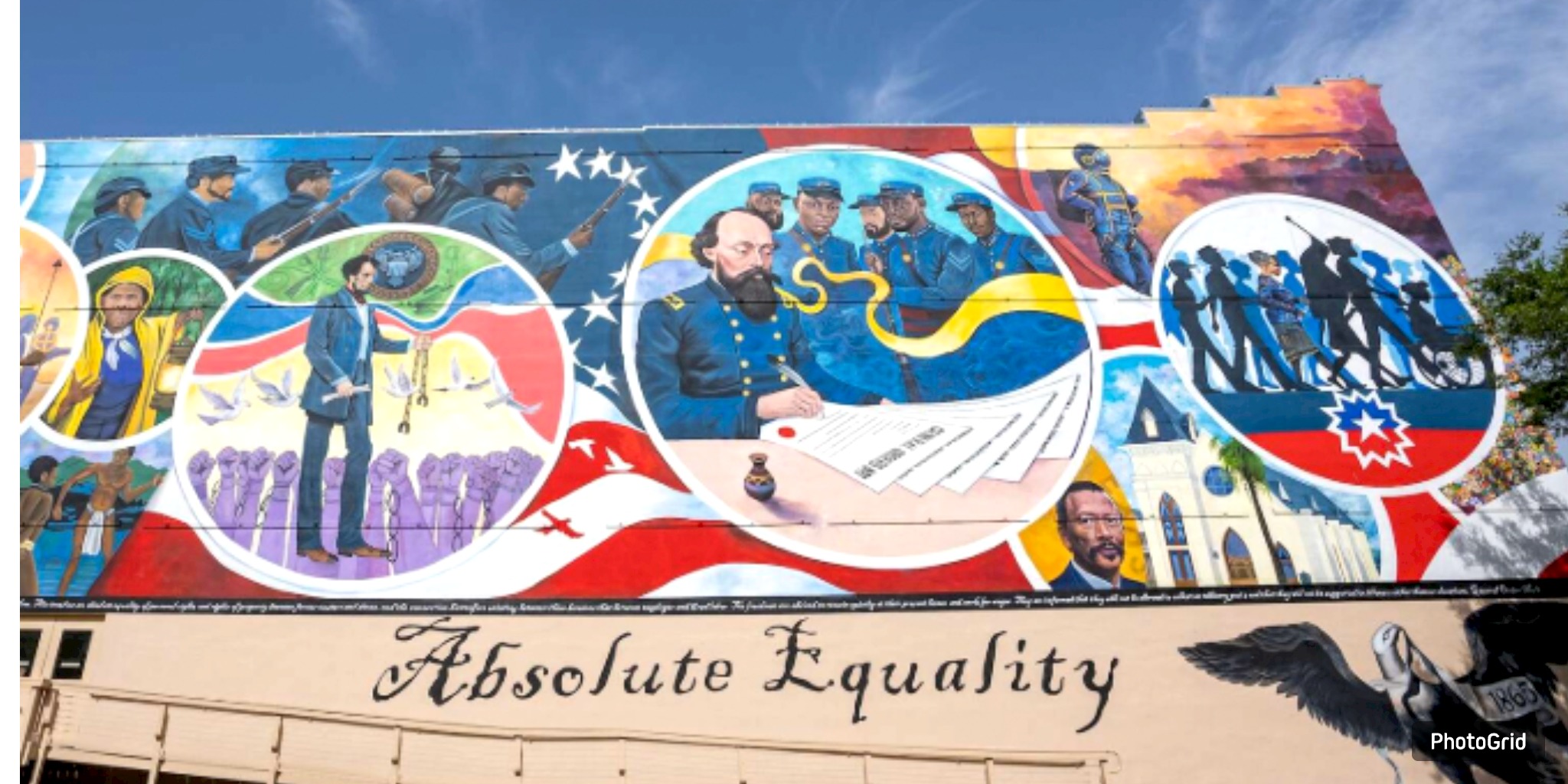Galveston, Texas—the birthplace of Juneteenth—is embracing the holiday with a monthlong celebration of music, history, and reflection. But as the city honors its legacy, debates over building a permanent museum highlight ongoing political and economic tensions.

This week marked a significant chapter in Galveston’s extended Juneteenth celebration, as events across the city paid tribute to both the historical and modern-day significance of the holiday. Galveston embraced its deep-rooted legacy with a lively mix of parades, concerts, film screenings, and historical lectures, further reinforcing its identity as the birthplace of Juneteenth.
Yesterday, Thursday, marked Juneteenth, featuring six hours of performances and panel discussions at the NIA Cultural Center, along with a citywide parade and picnic, a fireworks display at Menard Park, and an emotional emancipation reenactment march to Reedy Chapel—historically known as “the mother church of Texas.”
“Galveston finally claimed its rightful place in American history,” said Sam Collins III, a local historian and community advocate. Visitors were greeted by road signs declaring the city as the “Birthplace of Juneteenth,” and the city’s tourism agency distributed a wide array of educational Juneteenth materials. Yet, Collins noted, the celebration carried an undercurrent of discomfort. “Juneteenth serves as a reminder that the South lost,” he said. “And not everyone wants to celebrate that—even if they don’t say it out loud.”
That underlying tension also surfaced in Galveston’s continuing efforts to build a national Juneteenth museum. Earlier this month, the Galveston ISD Board voted to sell the historic L.A. Morgan Elementary School property to a housing nonprofit, despite a higher bid from a local Black-led organization aiming to use the site for a museum. The decision hinged on guaranteed funding, which the lower bidder did not have at the time.
Still, hope persisted. State Senator Mayes Middleton had secured $7 million in the state budget for the museum project, though access to those funds remained dependent on a competitive grant application process. Collins expressed optimism that support from local foundations and city stakeholders might help bridge the financial gap.
“I don’t think the city should manage the museum,” Mayor Craig Brown said, “but I do believe the city should have skin in the game to make it happen.”
In the meantime, Galveston’s Juneteenth spirit lived on through its street celebrations and shared community stories. For many, the true milestone would come when a permanent museum finally rises, right where the story began.
.jpg)
The Texas General Land Office and its partners have restored more than 5,300 linear feet of Hershey Beach on Galveston’s West End, depositing 378,000 cubic yards of dredged sand ahead of Spring Break. Officials say the project will help combat erosion estimated at nearly 7 feet per year.
.jpg)
Mardi Gras Galveston concluded Tuesday night with final parades along the Strand, warm weather and a strong local turnout. Thousands gathered to close out weeks of island celebrations.